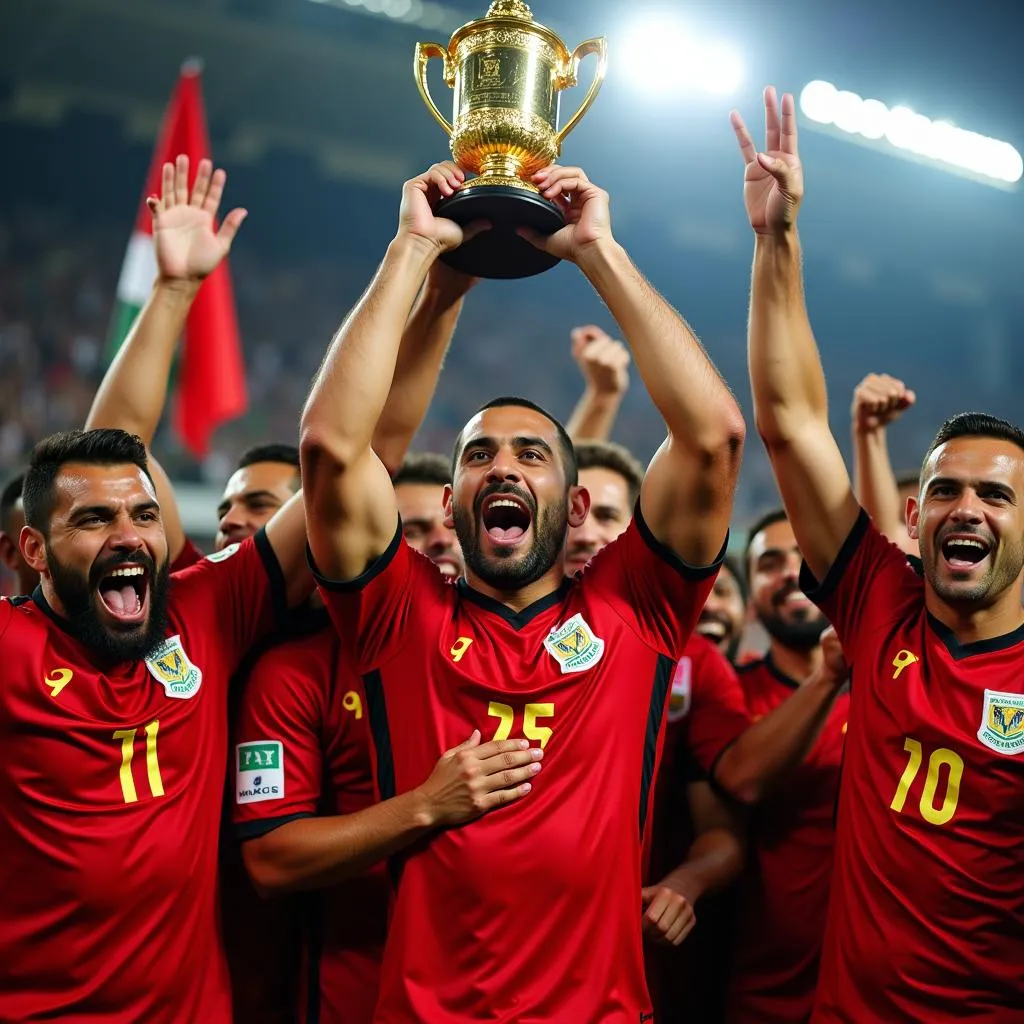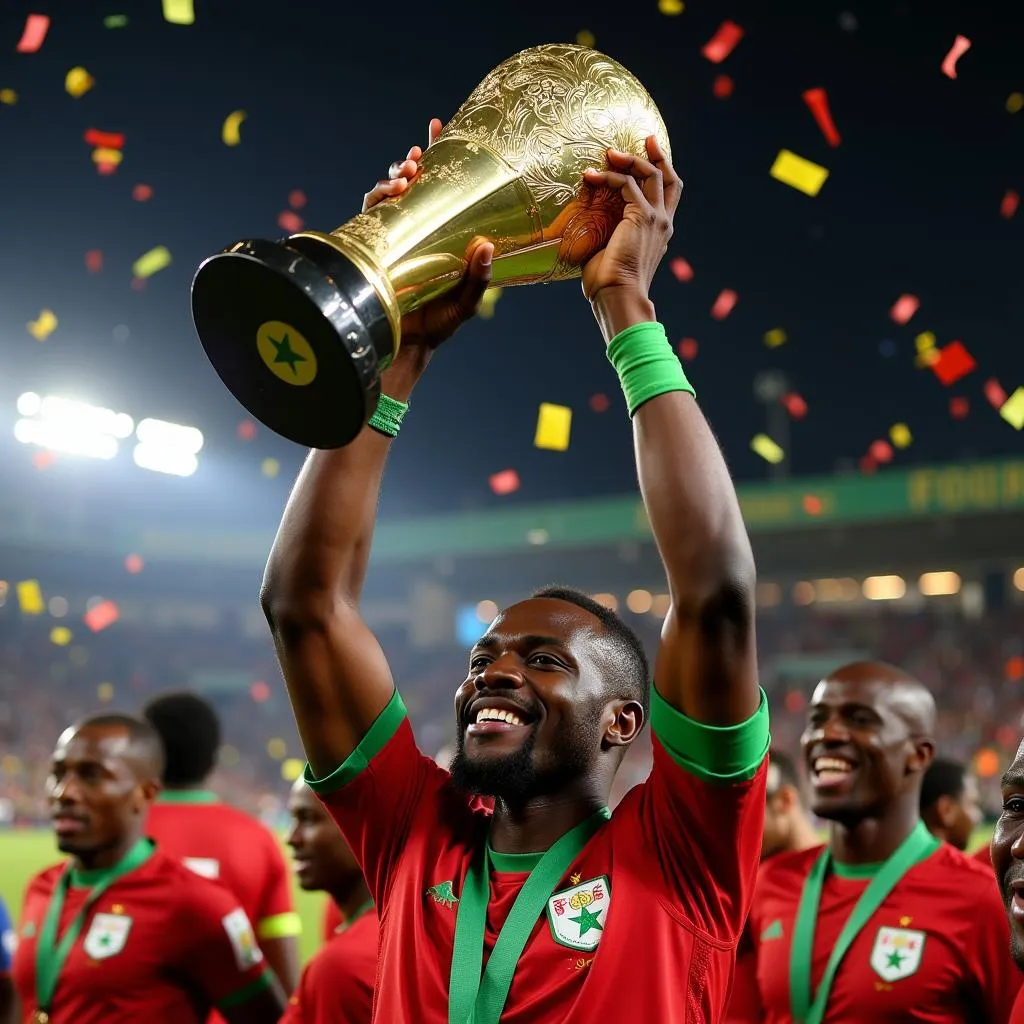African Cup of Nations Winners Till Date: A Legacy of Champions
The African Cup of Nations (AFCON), a testament to the continent’s vibrant footballing prowess, has captivated global audiences for decades. From its humble beginnings in 1957 to its current standing as a major tournament on the international football calendar, the AFCON has witnessed unforgettable moments of skill, passion, and national pride. This article delves into the rich history of the tournament, chronicling every African Cup of Nations winner till date.
A Tournament Takes Root: The Early Years of AFCON
The inaugural edition of the AFCON, then known as the African Cup of Nations, was held in 1957 in Khartoum, Sudan. Only three nations participated – Egypt, Sudan, and Ethiopia – with South Africa withdrawing due to its apartheid policies. Egypt emerged victorious, defeating Ethiopia in the final to claim the first-ever AFCON title. This marked the beginning of an era of Egyptian dominance.
Egyptian Dynasty: The Pharaohs Reign Supreme
The early years of the AFCON were largely dominated by Egypt. The Pharaohs secured their place as the tournament’s first powerhouse, clinching the title in 1959 and 1962. Ghana emerged as a formidable challenger, winning their first title in 1963 and successfully defending it in 1965. However, Egypt reasserted their supremacy in 1968, securing their fourth AFCON title.
 Egyptian players celebrating their AFCON victory
Egyptian players celebrating their AFCON victory
The Rise of New Powerhouses: The 1970s and 1980s
The 1970s witnessed the rise of new contenders on the African football scene. Sudan claimed their first and only title in 1970, while Congo (then Zaire) emerged victorious in both 1974 and 1978. Morocco etched their name on the trophy in 1976, signaling their growing influence. Ghana, however, remained a force to be reckoned with, adding two more titles to their tally in 1978 and 1982. Cameroon announced their arrival on the big stage by winning their first AFCON trophy in 1984.
The Indomitable Lions Roar: Cameroon’s Era
Cameroon, led by the legendary Roger Milla, established themselves as a dominant force in African football during the late 1980s and early 1990s. They clinched back-to-back titles in 1984 and 1988, showcasing their tactical discipline and attacking flair.
 Roger Milla performing his iconic corner flag celebration
Roger Milla performing his iconic corner flag celebration
A New Millennium, New Champions
The turn of the millennium saw the emergence of new champions. Nigeria ended their AFCON drought in 1994 and repeated the feat in 2000, showcasing their rich pool of talent. South Africa, back in the fold after the dismantling of apartheid, had a fairytale run in 1996, winning the tournament on home soil. Tunisia hosted and won the tournament in 2004, marking a memorable achievement for the North African nation.
Back to Familiar Territory: Egypt’s Resurgence
After a period of relative quiet, Egypt re-emerged as the dominant force in African football during the 2000s. Led by the talismanic Mohamed Aboutrika, they secured an unprecedented three consecutive AFCON titles in 2006, 2008, and 2010. This era solidified their status as the most successful team in AFCON history.
A Continent of Champions: The Modern Era
The last decade has witnessed a more competitive landscape in the AFCON, with various nations claiming the coveted trophy. Zambia lifted their first-ever title in 2012, a poignant victory dedicated to the victims of the 1993 Gabon air disaster that claimed the lives of the Zambian national team. Nigeria returned to the winner’s circle in 2013, followed by Ivory Coast’s triumph in 2015. Cameroon ended their 15-year wait for the title in 2017, demonstrating their enduring strength. Algeria emerged victorious in 2019, showcasing their tactical acumen and individual brilliance.
 Sadio Mané lifts the AFCON trophy for Senegal
Sadio Mané lifts the AFCON trophy for Senegal
Senegal’s Moment of Glory: The Lions of Teranga Conquer Africa
The 2021 edition of the AFCON, held in Cameroon, saw Senegal finally break their curse and lift the trophy for the first time in their history. Led by their captain, Sadio Mané, the Lions of Teranga showcased their resilience and attacking prowess throughout the tournament, culminating in a tense penalty shootout victory over Egypt in the final.
The Future of AFCON: A Tournament of Promise
The African Cup of Nations has evolved significantly since its inception, transforming into one of the most anticipated events on the global football calendar. With each edition, new talents emerge, rivalries intensify, and the continent’s passion for the beautiful game shines through. The future of AFCON is bright, promising more unforgettable moments of skill, drama, and national pride.
Conclusion: A Celebration of African Football
The African Cup of Nations stands as a testament to the rich history, vibrant culture, and undeniable talent that defines African football. From Egypt’s early dominance to Senegal’s historic triumph, the tournament has provided countless memories for football fans worldwide. As we look ahead to future editions, one thing remains certain – the AFCON will continue to captivate audiences and shape the narrative of African football for generations to come.
